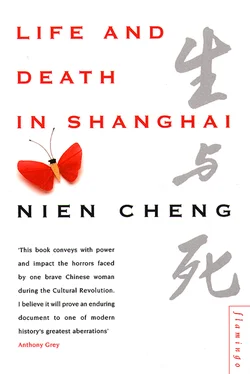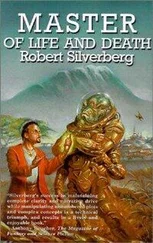After the Communist Army took over Shanghai, women were encouraged to take jobs. Winnie became a teacher at the Medical College in 1950. In the following year, Mao Tze-tung, anxious to put all universities under Party control, initiated the Thought Reform Movement. Winnie and Henry had their first rude awakening. Although they both survived this campaign more or less unscathed, they suffered the humiliating experience of having to make self-criticism of their family background, their education abroad and their outlook on life as reflected in the architectural designs Henry made and in their teaching methods. Repeatedly they had to write their life histories critically; each time, the Party representative demanded a more self-searching effort. At the end of their gruelling and humiliating experience, Henry was judged unfit to continue as Dean of the architectural department, which was now to use exclusively Soviet materials for teaching. Both Chinese traditional work and architectural designs from the West were scorned as feudalistic and decadent.
After the Thought Reform Movement was concluded in 1951, Party Secretaries were appointed to every level of university administration. They controlled every aspect of the life and work of the teaching staff, even though the majority of them had little education and had never been teachers. Henry and Winnie lived in premises assigned to them, accepted the salary given to them, did their work in the way the Party Secretaries wanted. These two well-educated, lively and imaginative young people, full of good will towards the Communist regime, were reduced by Mao Tze-tung’s suspicion and abuse of the intellectuals to teaching machines. But they were the fortunate ones. Many others from universities all over China did not fare as well. Some were sent to labour camps while others were thrown out of the universities altogether.
When the Korean War ended, Mao Tze-tung’s witch-hunt for dissidents temporarily relaxed. Prime Minister Chou En-lai, aware of the plight of the Chinese intellectuals, tried then to improve their condition. As a result of a more lenient policy, Henry and Winnie were given a more spacious apartment near my home. There were also fewer constraints placed on their professional activities. Winnie often dropped in to see me either to read the books and magazines I was able to get from Hong Kong and England sent through the office or to listen to my stereo records.
In 1956 Mao Tze-tung launched the campaign of ‘Let a Hundred Flowers Bloom and Let a Hundred Schools of Thought Contend’. The Party Secretaries in every organization, and even Mao himself, urged the people to give frank and constructive criticism of the work of the Communist Party. Believing the Party sincere in wishing to improve its work, tens of thousands of intellectuals and more than a million Chinese in every walk of life poured out their grievances and suggestions. But Winnie and Henry refrained from speaking out. They escaped persecution when Mao Tze-tung swung his policy round in 1957 and initiated the Anti-Rightist Campaign. He labelled all those who had offered criticism ‘Rightists’. Many of them lost their jobs, became non-persons and were sent to labour camps; others had their pay reduced and were demoted in rank. The treachery of Mao Tze-tung in repeatedly inviting frank and constructive criticism and then harshly punishing those who gave it completely cowed the Chinese intellectuals so that China’s cultural life came to a virtual standstill.
When Winnie and I reached my house, the front gate swung open before I pressed the bell. Lao Chao was standing there anxiously waiting for my return. He told me my daughter had telephoned to say that she was not coming home for dinner.
‘Please tell Cook Mrs Huang is staying for dinner,’ I said to Lao Chao and took Winnie upstairs to my bathroom.
Lao Chao laid the table for two for a European meal with white embroidered linen table mats. A bowl of white carnations was in the centre of the dining table.
‘Cook said it’s steamed Mandarin fish with a green salad. Is it all right?’ Lao Chao asked me. I was usually served either Chinese or European style cooking depending on what my cook was able to obtain at the market.
I looked at Winnie inquiringly and she said, ‘That’s fine. I love Mandarin fish.’
After we had sat down, Winnie looked up at the large painting of a female figure in pale blue by the famous painter Ling Fong-min who was once the head of the Hangchow Academy of Art. This painting was the centrepiece of decoration of my blue-and-white dining room. It went well in colour and style with the blue-and-white Huan Têh plate and K’ang Hsi vase displayed on the blackwood sideboard.
‘Have you heard? Ling Fong-min is in serious trouble,’ Winnie told me.
I was surprised. I knew the painter was earning large sums of foreign exchange for the People’s Government, which bought his paintings for a paltry sum but sold them in Hong Kong for twenty or thirty times the amount.
‘He is accused of promoting the decadent art form of the West. But a more serious charge is that he has maintained contact with people outside China and has given information to captains of foreign ships calling at Shanghai. The foreigners were observed coming to his home by his neighbourhood activists.’
‘Well, his wife and daughter are in Brazil. Actually I know for a fact the ships’ captains came to buy his pictures,’ I said.
‘Many other painters are in trouble too. Your old teacher, Miss Pong, is also being criticized. It’s said she once painted a branch of the Mei Hua tree (a flowering tree that blooms in late winter or early spring) hanging down rather than upright to symbolize the downfall of the Communist Party.’
I laid down my fork and said to Winnie, ‘They are mad. In the paintings by old masters the Mei Hua tree is often depicted hanging over a cliff. It isn’t anything she has invented.’
‘Well, you know how it is. The Party officials in her organization have probably never seen any paintings by the old masters. Party officials in charge of artists are not required to know the difference between water-colours and lithographs. And most of them don’t know.’
Our conversation was so disheartening that it depressed our appetites. We couldn’t do justice to the delicious meal my cook gave us.
When we were drinking tea in the drawing room, I told Winnie about the struggle meeting I had just attended. After thinking it over, she said, ‘It seems you are going to be treated just like us now that Shell has closed its Shanghai office. No one outside China will know what happens to you.’
‘What do you think is the purpose of their getting me to attend the meeting?’ I asked her.
‘To frighten you, of course.’
‘I’m not easily frightened.’
‘That, I think, they don’t know. All they know is that you are a rich woman who has led an easy life and who has never been involved in any political campaign before. They probably think you are easily frightened. As a rule they underestimate our courage.’
‘Why do you think they want to frighten me? What for?’
‘That’s very hard to say at this juncture. Whatever it is, be prepared for unpleasantness. Be alert and keep your mouth shut. Don’t say anything inadvertent, whatever the provocation.’
‘What about yourself? How are you getting on?’ I asked her.
‘I’m worn out. We spend all our time at meetings or writing Big Character Posters. Classes have been suspended. Several professors and medical experts have already been denounced. The situation seems even more serious than in 1957 at the beginning of the Anti-Rightist Campaign.’
‘Are you likely to become an object of criticism?’ I asked her.
‘Of course one can’t be sure. But I don’t think I’m important enough. I’ve been a junior lecturer for sixteen years, without promotion or a rise in pay. I always humbly ask my Party Secretary for instructions and never indulge in the luxury of taking the initiative. I carry out his instructions even when I know he is wrong. At indoctrination meetings I never speak unless told to do so. Then I simply repeat whatever was said by our Group Leader or the Party Secretary. I think my behaviour can be considered impeccable. Anyway, in the last analysis, the more senior you are the more likely you are to get into trouble. “A big tree catches the wind” is a true saying.’
Читать дальше












